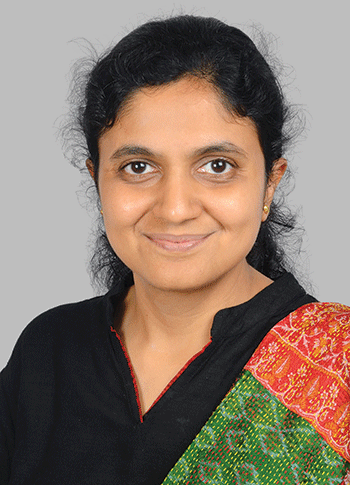An alumna of IIT-Delhi and IIM-Calcutta, Ramya Venkataraman is founder and CEO of Centre for Teacher Accreditation (CENTA), promoted to recognise teaching excellence and create career pathways for teaching professionals. Excerpts from an interview:
 After a distinguished career in management consulting and also establishing the education practice of McKinsey & Co, you left to promote CENTA in 2014. What were the prime factors which prompted this career switch?
After a distinguished career in management consulting and also establishing the education practice of McKinsey & Co, you left to promote CENTA in 2014. What were the prime factors which prompted this career switch?
When I was close to completing ten years in McKinsey, having played voluntary roles with education organisations, I wanted to commit myself full-time to improving the quality of K-12 education in India. So, I jumped at the chance to set up McKinsey’s India education practice, thanks to the support of our managing director and other colleagues. The six years of on-the-ground experience building the practice at McKinsey from 2009 to 2014 gave me a deeper understanding of the complex and intertwined issues in this sector. Finally, I started believing that one of the most important missing pieces is positive recognition, rewards and career opportunities for teachers — the most important determinant for improving K-12 education. That led to the idea of CENTA and I finally left McKinsey in end 2014 to promote this organisation.
How satisfied are you with the growth and development of CENTA?
CENTA’s growth and national reach, in less than three years, has been beyond all expectations. I am very grateful to the teachers, principals, school managements, governments, other education organisations and media who have enabled our growth and development. CENTA is now a community of 15,000-plus teachers in 500 cities/towns/villages, serving in more than 1,000 schools. Since then the Development Bank of Singapore and National University of Singapore have ranked CENTA among the Top 60 social enterprises of Asia; CENTA has been a member institution of a global alliance of teacher developers alongside Harvard GSE, NIE Singapore, University of Finland and others. Moreover, CENTA is a knowledge partner of NITI Aayog.
If I am right, CENTA isn’t in the teacher training and development business. What exactly is your business model?
You are right. CENTA doesn’t provide teacher training. We provide independent certification of teaching competencies assessed according to rigorous CENTA standards. Certification is the outcome of practice-oriented objectives and practical assessment of teachers who apply for assessment of their capabilities. It facilitates the teacher recruitment, career progression and professional development programmes of school managements and prompts teachers to improve their own competencies. Eventually, I believe CENTA will make teaching an aspirational career, and benefit K-12 education nationwide.
One of your major initiatives is the annual CENTA Teaching Professionals’ Olympiad (TPO). What’s its objective and how satisfied are you with the response to TPO from the teachers’ community?
The CENTA Teaching Professionals’ Olympiad (TPO) is a national competition to recognise, celebrate and reward outstanding teachers. It is a two-hour objective multiple-choice test based on CENTA standards that are highly practice-oriented. The response from teachers has been overwhelming! Over the past three years, 15,000 school teachers, principals, coordinators, supplemental tutors, professional fellows, students from B.Ed and teacher education institutes, and mid-career professionals interested in teaching have participated in the TPO. Schools too have actively encouraged their teachers and felicitated winners.
TPO 2017 is scheduled to be held in 28 cities across India and also in Dubai on December 9. What’s your advice to K-12 teachers across the country about the benefits of participation?
Thanks for asking that question! The TPO this year will be held in 14 subject tracks, three special challenger tracks and four languages, making it accessible to more people. We believe there are three types of benefits for entrants. Firstly, a host of exciting prizes from our sponsors — more than 100 cash awards including Rs.1 lakh for four winners; national recognition for teachers and their schools in The Hindu; opportunity to attend the Global Education and Skills Forum in Dubai next year; a sponsored two-week teacher development programme at Oxford University, among other prizes. Secondly, all participants get a confidential personal performance report. Third, many schools across the country have started giving weightage to the TPO when hiring teachers, awarding salary increases, and promotions. Therefore, my advice to all teachers is to register on www.tpo-india.org before the October 31 deadline.
The gap in learning outcomes in K-12 education between the developed OECD countries and India is reportedly widening daily. How optimistic are you about the future of Indian education?
I am optimistic, simply because the range of efforts being invested in school education, whether from governments, non-profits, private companies or individuals, is increasing. I believe that market demand for quality education is growing strongly and we will see big improvements over the next several years.